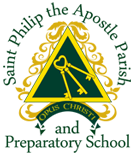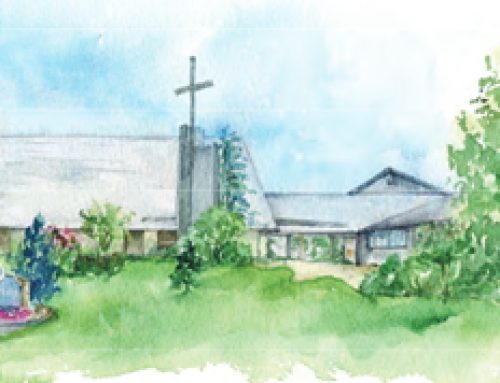THE MOST HOLY BODY & BLOOD OF CHRIST
The one who feeds on this bread shall live forever
FROM THE PASTOR’S DESK
My Dear Parishioners:
The Eucharist is not simply something we receive; it is something we do. The Eucharist is not simply a noun; it is fundamentally a verb, an action. Now we believe many important things about the noun of the Eucharist. We believe that the bread and wine become for us the real Body and Blood of the Lord. This is what we celebrate today on the Feast of Corpus Christi. When we eat this bread and drink this cup we receive into our hearts the body, blood, soul, and divinity of Jesus. This is a great mystery and a great treasure. We should receive the Eucharist often. But we cannot appreciate the Body and Blood of the Lord, the noun of the Eucharist, if we separate it from the verb of the Eucharist. For it is the action of the Eucharist that allows the bread and wine to become the Body and Blood of Christ for us. It is a miracle we witness at every Mass we attend.
So, what is the action of the Eucharist? It is what we do together every weekend. What do we do? We gather, we listen, we bless, we eat, and we go forth. All these verbs are verbs of Eucharist. We gather from our homes, from our work and come together in this place to create an assembly, a community of believers. The gathering is important because the action of the Eucharist is not the action of one person but of many. It is the action of the church. We listen: we hear the Word of God proclaimed in the Scriptures and in the homily and we remember what God has done for us, what God has promised us and how God is active in our lives. We bless: we bless God in the Eucharistic Prayer, we stand together from the Holy, Holy to the Great Amen and say this prayer of blessing and consecration. It is the priest who says the words, but the prayer is not the priest’s prayer, it is our prayer, the prayer of the whole assembly and when we bless and pray this prayer together in memory of Jesus, the real presence of Jesus comes into our midst. We then eat the Body and Blood of the Lord, receiving the nourishment of Christ and then we go forth, forth from this place to bring Christ’s message to the world.
These are the verbs of the Eucharist: gathering, listening, blessing, eating, and going forth. Only in the context of this action is the true significance of the Body and Blood of Christ clear. So, allow me today to point to two truths that flow from the action of the Eucharist, two truths that affect our lives-our dignity and our obligation.
The action of blessing in the Eucharist reveals to us our dignity as daughters and sons of God. The tremendous gift of Christ’s Body and Blood would not happen if we did not ask for it. It is in the Eucharistic Prayer, led by the priest, that the community asks for the gift of Christ’s presence. God’s willingness to honor our prayer reveals our dignity as God’s own children. The dignity we have is not an individual dignity but a dignity that we share as a community. Everyone who stands gathered around this altar is a holy person. Together, we form a royal priesthood, a holy people. As we bless together the bread and wine of the Eucharist, we recall our value and the value of one another. The action of blessing together reveals this dignity to us.
The action of going forth, of leaving this Eucharist is an action that reveals our obligation. Because if we have received the Word of the Lord and shared together in the Body and Blood of the Lord, we then have an obligation to bring that life of Christ to others. Going forth from this place reminds us that we have come here to be refreshed and recommitted to action for the Kingdom. We should go forth from this place willing to be more patient with our family, less critical of our neighbor, more committed to service of others, less fearful in our struggles with evil. The action of going forth from this place reminds us that the action of the Eucharist does not end here, it is meant to continue in our lives, in our efforts to build the Kingdom, to transform the world.
Let us always receive the Eucharist with reverence, seriousness, and grace. Please do not “grab” the Body of Christ out of the priest’s, deacons’, or Extraordinary Minister of Holy Communion hands. At times, I wish we still had a communion rail to knee and receive the Bread of Angels come down from heaven. Our posture should reflect such a gift. As Roman Catholics we only knee before the presence of God.
There is no doubt that the Body and Blood of Christ, Christ’s Real Presence, is a tremendous gift to us, but the meaning of that gift is not clear if it is separated from the action of the Eucharist. Eucharist is a verb: gathering, listening, blessing, eating, going forth. It is we the church, reminding ourselves of our dignity and obligation. We do not simply receive the Eucharist. We do it! So, let’s do it now!
Peace,
Fr. Monteleone
To read complete bulletin click here



